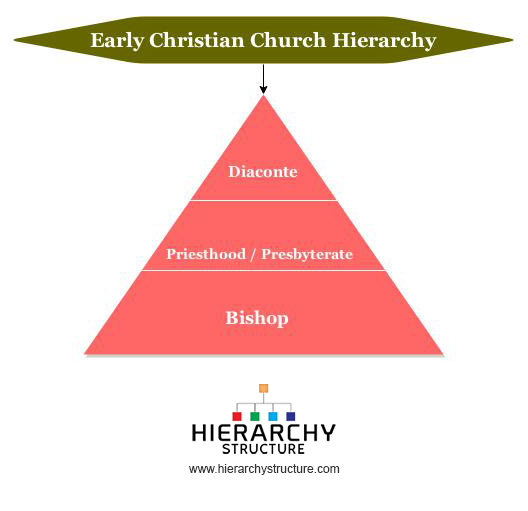Amongst the first generation Christians, a time frame was given to a prospective apostle to mature in the faith and later on it was clearly deciphered that Christ was not comfortable to appoint new apostles to fill in the originals’ place.
Those few men were special who formed a direct link between Christ and the Christian community but their tenure was not permanent. That is the reason why they gradually diminished from the scene and left behind the three fold arrangement of bishops, priests and deacons.
Paul the apostle described himself as a diakonos which meant only a minister. Similarly Peter who was also an apostle called himself a presbuteros who is just an older figure in the Christian community. The bishops as we know in present day world were also called evangelists because they were responsible for constructing new churches.
 In Paul’s time, the hierarchical pattern of the Early Christian Church was mainly governed by Apostles and the Elders, the designated functions for the Bishops, Elders and Deacons were not classified clearly. But by 1st and 2nd centuries the structures were formalized and legalised.
In Paul’s time, the hierarchical pattern of the Early Christian Church was mainly governed by Apostles and the Elders, the designated functions for the Bishops, Elders and Deacons were not classified clearly. But by 1st and 2nd centuries the structures were formalized and legalised.
The office of the apostle was a special one, considered immediately after Christ. The meaning of apostle in Greek is “delegate” or “ambassador” and is supposed to mean authority of the one who sent him. So these biblical church authorities exercised the authority of Christ.
With time, the Church grew in size and it was becoming exceedingly difficult for these few men to govern and it became mandatory to delegate. The apostles initialised the office of the deacon, the priest and the bishop, reallocating functions in a “bottoms up” manner, meaning that the last post gets the most important portfolios.
The First Office that was Conceptualised was:
-
Diaconte
This post was created because of a dispute over the correct distribution of the Church’s charitable possessions. Therefore the church of apostles created this group of seven men to oversee the money matters.
-
Priesthood / Presbyterate
When the Church started growing geographically different congregations were formed in places wide apart. This position was created by Paul himself so that religious sacraments are performed without any problem in the absence of the apostles.
-
Bishop
Initially the apostles were in charge of appointing the Presbyters but when the numbers grew large, things went out of control. The apostles also started aging so they had to appoint a selected few who would be training and disciplining the presbyters. They also ruled over multiple congregations which involved erecting new churches too. These men who handle these jobs were known as the bishops or the episcopacy.
